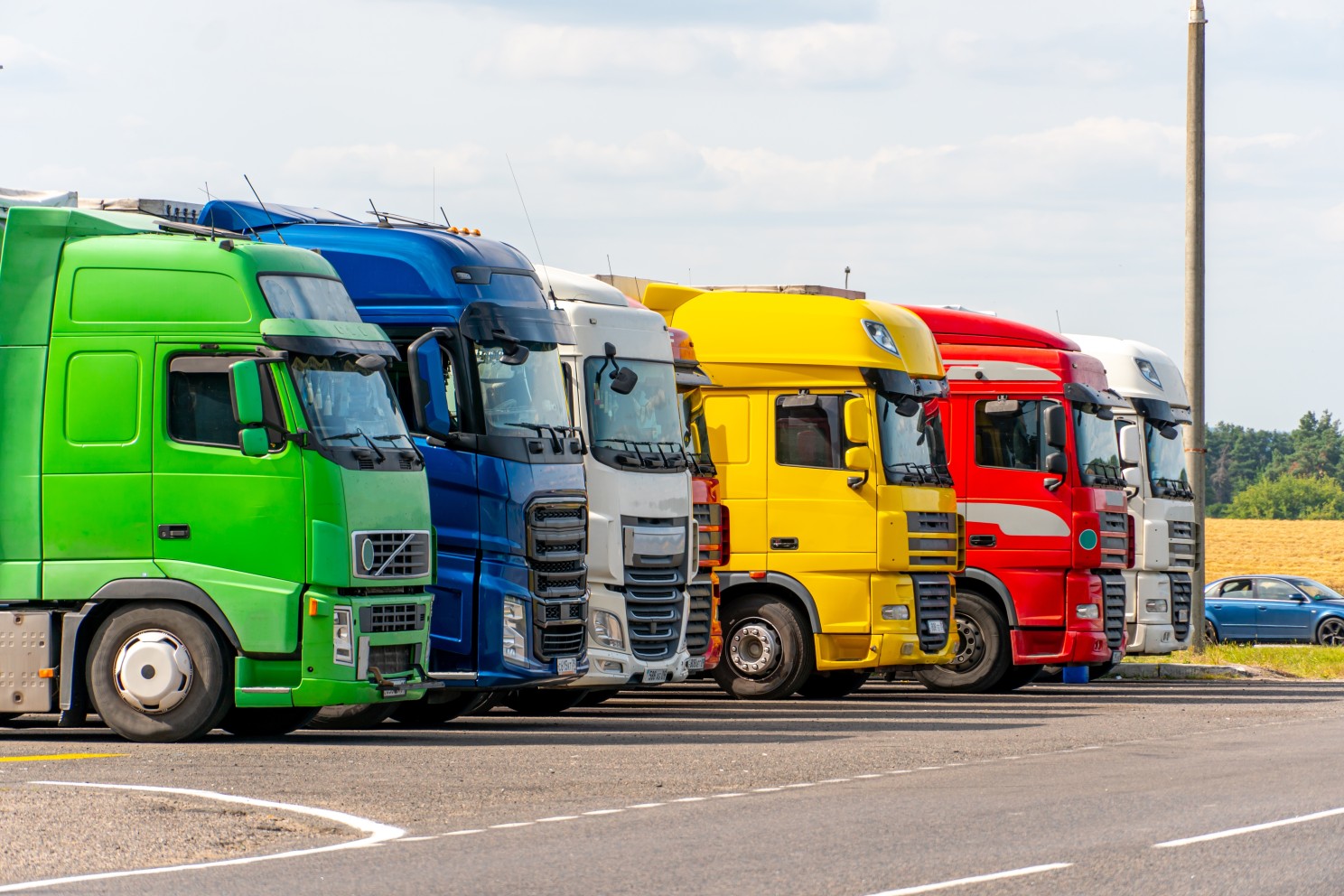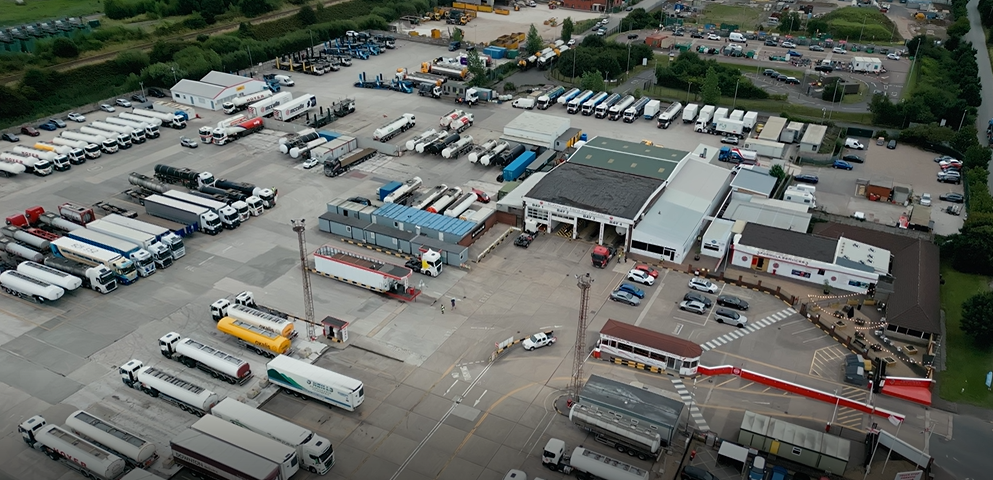
Susie Jones
Wie kann die Vielfalt der Fahrer in der Branche gefördert werden?
Erstellt: 21.08.2024
•
Aktualisiert: 21.08.2024
Wenn wir Sie bitten würden, einen Lkw-Fahrer zu beschreiben, könnte Ihre Antwort das stereotype Bild eines älteren, weißen Mannes vermitteln. Ist das richtig? Traditionell war die Lkw-Branche von Männern dominiert. Im Laufe der Jahre ist die Branche vielfältiger geworden und hat Frauen, Menschen unterschiedlichen Alters und mit unterschiedlichem Hintergrund die Möglichkeit eröffnet, in die Branche einzusteigen. Die Vielfalt nimmt zu, aber externe Herausforderungen wie der Brexit und die Pandemie haben diese Entwicklung gebremst (https://).
Frauen in der Branche
Obwohl im Vereinigten Königreich bis zu [100.000 Lkw-Fahrer fehlen, sind nur 1 bis 3 %] (https://www.itv.com/news/2021-08-13/how-female-truckers-are-gearing-up-to-stem-shortfalls-in-the-haulage-industry) der Lkw-Fahrer Frauen. Warum also entscheiden sich nicht mehr Frauen für ein Leben auf der Straße?
Sicherheit: Schätzungsweise [60 %] (https://www.businessinsider.com/female-truckers-describe-how-to-stay-safe-trucker-shortage-2022-2?r=US&IR=T) der Lkw-Fahrerinnen haben sich bei der Arbeit unsicher gefühlt. Viele haben das Bedürfnis geäußert, unter einer Ampel zu parken, ihre Stopps zu planen und Pfefferspray mitzuführen.
Technik und Ausrüstung: Ergonomisch gesehen wurden Lkw für Männer gebaut. In der Vergangenheit empfanden Frauen das Greifen nach Bedienelementen, das Einstellen von Sitzen und die körperlichen Aspekte der Arbeit als hinderlich. Dank des technischen Fortschritts ist körperliche Anstrengung jedoch kein Problem mehr. Die meisten modernen Lkw verfügen heute über Servolenkung und Automatikgetriebe, um die Arbeit zu erleichtern.
Trotz dieser Rückschläge verschaffen sich Frauen Gehör und setzen Veränderungen in der Branche durch. Fahrerinnen wie Jodi Smith sind unschätzbare Fürsprecherinnen für die Branche. Jodi teilt ihre Erfahrungen im Lkw-Verkehr online und beweist, dass diese Branche nicht nur eine Männerwelt ist.
"LKW-Fahrer ist kein Männerberuf - ich kann diesen Job mit einem kompletten Satz Acrylfarben machen! Es ist ziemlich anstrengend, aber nicht schwer", sagt Jodi, als wir 2021 mit ihr sprachen (https://fleetpoint.org/driver-training-safety/driver-safety-2/are-women-the-future-of-trucking/). Mit sieben Jahren Erfahrung im Rücken setzt sich Jodi weiterhin dafür ein, dass mehr Frauen in die Truckergemeinschaft aufgenommen werden.
Ein Ergebnis, das zu sichereren Straßen führen könnte - American Transportation Research Institute Daten zeigen, dass Frauen als Berufskraftfahrerinnen sicherer sind. Bei männlichen Fahrern ist die Wahrscheinlichkeit, in einen Unfall verwickelt zu werden, um 20 % höher als bei ihren weiblichen Pendants.

Altersvielfalt in der Branche
Nach Angaben des Office of National Statistics liegt das Durchschnittsalter eines Lkw-Fahrers bei achtundvierzig Jahren, und 47 % der Lkw-Fahrer im Vereinigten Königreich sind über fünfzig und wollen bald in Rente gehen. Diese Statistiken und der aktuelle Fahrermangel deuten darauf hin, dass in der Branche ein Bedarf an jüngeren Fahrern besteht.
Das ist leichter gesagt als getan, denn viele junge Fahrer stehen vor folgenden Herausforderungen:
Ausbildung: Der Erwerb eines gewerblichen Führerscheins kann bis zu 2.000 £ kosten
Versicherung: Obwohl das Mindestalter für das Führen eines Lkw im Vereinigten Königreich bei 18 Jahren liegt, haben viele Schwierigkeiten, eine Versicherung zu bekommen
Erfahrung: Einige Unternehmen wollen erfahrene Fahrer einstellen, was ein Rückschlag sein kann
Die Bedingungen: Das Leben von Truckern kann anstrengend sein - lange Arbeitszeiten und die Abwesenheit von Angehörigen können abschreckend wirken. Das Leben auf der Straße hat jedoch auch viele Vorteile, wie Gemeinschaft, Reisen, Bezahlung und Arbeitsplatzsicherheit.

Unternehmen, die Fahrer suchen, können von der Einstellung jüngerer Lkw-Fahrer profitieren. Sie sind eher bereit, sich an eine sich ständig verändernde Branche anzupassen. Außerdem lernen sie schnell und begrüßen technologische Fortschritte. Wenn immer mehr jüngere Fahrer in die Branche einsteigen, wird die Fluktuationsrate sinken - und damit auch die Kosten für die Unternehmen. Außerdem wird dadurch sichergestellt, dass die Branche die wachsende Nachfrage nach Waren und Dienstleistungen befriedigen kann.
Aber was sind die Nachteile für Sie, wenn Sie ein älterer Fahrer sind? Es wird vermutet, dass sich das Alter auf die körperlichen und kognitiven Fähigkeiten auswirkt und die Fähigkeit, sicher zu fahren, beeinträchtigt. Diese sind für Lkw-Fahrer lebenswichtig, da sie lange Arbeitszeiten, körperliche Anforderungen und Stresssituationen bewältigen müssen.
Die FMCSA hat diese Bedenken aufgegriffen. Die Vorschriften sehen vor, dass sich ältere Fahrer regelmäßig ärztlichen Untersuchungen und Fahrbewertungen unterziehen müssen. Kürzlich wurde berichtet, dass ein 90-jähriger LKW-Fahrer aus Sheffield noch immer Lkw fährt, nachdem er bei bester Gesundheit untersucht worden war. Viele argumentieren, dass ältere Fahrer jahrzehntelange Erfahrung und Wissen mitbringen - und meinen, wenn sie gesund sind, sollte es kein Hindernis für eine Beschäftigung geben.
Wie kann Vielfalt den derzeitigen Fahrermangel beheben?
Im Jahr 2022 stellte das Amt für Veteranenangelegenheiten der Wohltätigkeitsorganisation Veterans into Logistics 100.000 £ zur Verfügung. Die Wohltätigkeitsorganisation bietet Veteranen die Möglichkeit, LKW-Fahrer zu werden. Dank der Finanzierung konnte die Wohltätigkeitsorganisation ihr jährliches Schulungsangebot erheblich ausweiten, die Zahl der Mitarbeiter erhöhen und die Zahl der angebotenen Schulungen verdreifachen. XPO, ASDA und Muller Milk & Ingredients sind alles Unternehmen, die Veteranen direkt nach der Ausbildung einstellen.
Darüber hinaus stellte ASDA 40.000 Pfund für Weiterbildungsmaßnahmen zur Verfügung. Die Unterstützung von Wohltätigkeitsorganisationen wie "Veterans into Logistics" schafft eine vielfältigere Kultur innerhalb der Lkw-Fahrerschaft und geht gleichzeitig aktiv gegen den derzeitigen Fahrermangel vor.
Was kann getan werden, um mehr Vielfalt zu erreichen?
Eine vielfältige Belegschaft öffnet Unternehmen für unterschiedliche Sichtweisen und Erfahrungen. Was können Unternehmen tun, um eine vielfältige Belegschaft zu gewinnen?
Investieren Sie in Schulungen: Schulungen zur Aufklärung der Mitarbeiter über Themen wie implizite Voreingenommenheit, Inklusion am Arbeitsplatz, Diskriminierungsprävention und die Unterstützung einer vielfältigen Belegschaft können sich positiv auswirken.
Investieren Sie in einen integrativen Einstellungsprozess: Die Anonymisierung des Lebenslaufs eines Bewerbers kann unbewusste Vorurteile verringern.
Fördern Sie eine integrative Kultur: Vermitteln Sie potenziellen Bewerbern, wie Sie aktuelle Fragen der Vielfalt und Integration angehen.
Sprechen Sie unterrepräsentierte Gruppen in dieser Branche an.
Die Förderung einer vielfältigen Kultur im Lkw-Fahrergewerbe kann für die Branche von großem Nutzen sein. Es wird nicht nur dazu beitragen, ein integrativeres und einladenderes Arbeitsumfeld zu schaffen, sondern auch dem anhaltenden Fahrermangel entgegenwirken. Speditionsunternehmen haben die Verantwortung, die Vielfalt ebenso zu fördern wie die Lkw-Fahrer.

In welchem Land werden Lkw-Fahrer gesucht?
Aus einem im Dezember 2022 veröffentlichten Bericht geht hervor, dass der Mangel an Lkw-Fahrern in Europa zwischen 2020 und 2021 um 42 % gestiegen ist. Das Vereinigte Königreich führt die Liste mit 100.000 offenen Stellen an. Mexiko und China standen ebenfalls weit oben auf der Liste, wobei der Mangel in Mexiko um 30 % und in China um unglaubliche 140 % zunahm.
Brauchen wir in Zukunft noch Lkw-Fahrer?
Die Einführung selbstfahrender Lkw hat viele zu der Annahme veranlasst, dass es keine Zukunft für Lkw-Fahrer gibt. Das ist jedoch bei weitem nicht der Fall.
Autonome Lkw werden schrittweise in bestimmten Regionen eingeführt. Die Wahrscheinlichkeit, dass die meisten Fahrer davon betroffen sein werden, ist gering.
Auch wenn autonome Lkw weltweit eingesetzt würden, würden immer noch Fahrer benötigt. Der Bedarf an Lkw-Fahrern wird nur noch steigen, denn es gibt zu viele Dinge, die passieren könnten, wenn kein Fahrer im Führerhaus sitzt.
Was sind die Stereotypen der Lkw-Fahrer?
Wir wissen um die Bedeutung der Lkw-Fahrer, aber in den Augen einiger weniger sind mit der Branche immer noch negative Stereotypen verbunden - diese Darstellung kann auf eine falsche Darstellung in den Medien und manchmal auf einige unerfahrene Fahrer zurückzuführen sein. Doch was ist das für ein stereotypes Bild? Und warum ist es falsch?
Übergewicht - Einige Raststätten bieten ungesundes Fast Food an, was den Eindruck erwecken könnte, dass Lkw-Fahrer nur dieses konsumieren. Das ist aber keineswegs die Norm. Sich unterwegs gesund zu ernähren, kann eine Herausforderung sein, aber viele achten auf eine ausgewogene Ernährung und treiben regelmäßig Sport. Sehen Sie sich unsere Tipps für [gesunde Ernährung unterwegs] an (https://www.linkedin.com/pulse/how-healthy-truck-driver-snap-account/?trackingId=g91E6xbfIMoJTora4dSipQ%3D%3D).
Schlechte Fahrer - ein Klischee, das nicht weiter von der Wahrheit entfernt sein könnte. Berufskraftfahrer nehmen die Sicherheit sehr ernst. Sie halten sich oft an die Geschwindigkeitsbegrenzung, sind bei schwierigen Wetterbedingungen besonders vorsichtig und lassen viel Platz zwischen sich und anderen Fahrern.
Schlecht gelaunt - Wir alle werden im Straßenverkehr wütend, und Trucker sind da keine Ausnahme. Allerdings ist es unfair, dieses Klischee nur auf Trucker zu übertragen.
Alle Lkw-Fahrer sind Männer - In dieser Branche gibt es mehr Männer als Frauen, doch die Zahl der weiblichen Lkw-Fahrer steigt.



